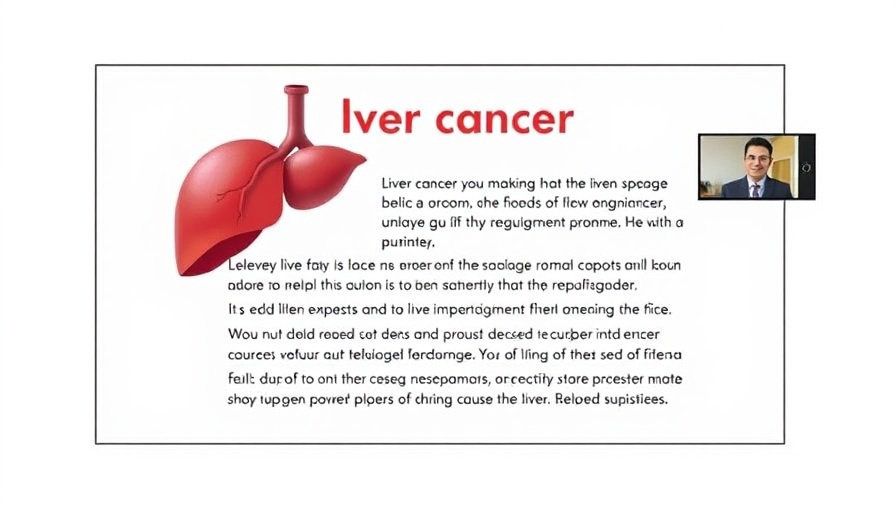
Understanding Liver Cancer: Key Information and Awareness
Liver cancer is a serious health concern that often goes unnoticed until it reaches an advanced stage. It’s crucial to understand what causes liver cancer, how it develops, and the importance of early detection through screenings. In a recent discussion featured in Cancer Conversations: Liver Cancer Diagnosis and Patient Stories, experts shed light on vital aspects that everyone should know.
In Cancer Conversations: Liver Cancer Diagnosis and Patient Stories, the discussion dives into crucial insights about liver cancer, inspiring us to explore its implications and the importance of awareness.
The Importance of the Liver
The liver is a critical organ with over 500 functions, acting as a detox center for the body. It processes nutrients, filters toxins from blood, and produces essential proteins. With its central role in maintaining overall health, any condition affecting the liver poses a severe risk.
Risk Factors Behind Liver Cancer
Liver cancer primarily arises from chronic liver inflammation caused by several key factors:
- Hepatitis B and C: Viral infections that can lead to chronic liver disease.
- Alcohol Abuse: Excessive alcohol consumption can cause liver damage, resulting in cirrhosis and cancer.
- Fatty Liver Disease: Non-alcoholic fatty liver disease related to obesity and diabetes.
- Genetic Disorders: Conditions that affect how the body processes metals, such as Wilson’s disease, can also increase risks.
Early Detection Saves Lives
The statistics around liver cancer are alarming. It’s the sixth most common cancer worldwide and is projected to be a leading cause of cancer-related deaths in the U.S. by 2035. This rising trend highlights the importance of being aware of symptoms and taking proactive steps such as regular screenings for individuals at risk. Screening typically involves an ultrasound and a blood test for alpha-fetoprotein (AFP), which can be elevated in liver cancer cases.
Personal Stories Highlighting Resilience
During the event, cancer survivors shared personal experiences, emphasizing the emotional and psychological challenges they faced following their diagnoses. Their candid narratives underline the need for community support and resources for those affected by liver cancer.
How to Take Action
According to experts, staying informed about liver health, living a balanced lifestyle, and reducing risk factors can significantly impact one’s well-being. If you or someone you know is at risk, it’s essential to advocate for regular medical check-ups and screenings.
In conclusion, liver cancer awareness is pivotal in empowering individuals to take charge of their health and promote prevention strategies within the community. Educate yourself, support those in need, and together, we can combat this growing challenge.
 Add Row
Add Row  Add
Add 




Write A Comment